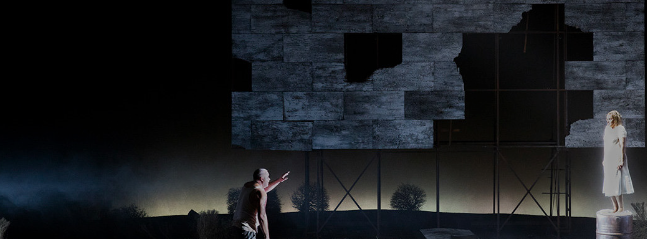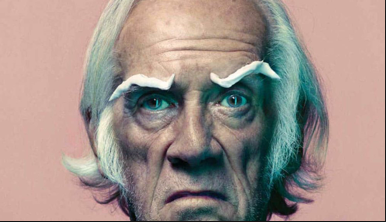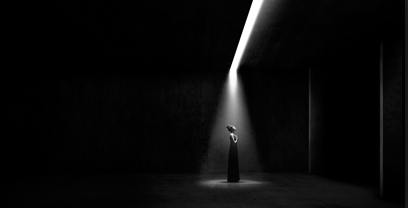Das Wunder der Heliane at Vlaanderen Opera House Antwerp
Erich Wolfgang Korngold was born in 1897 in Austria/Hungary and died at the age of 60 in California. He was a child prodigy, having a great European career until the rise of the Nazi regime forced him to flee to America in 1934. Thereafter, he worked on some 16 Hollywood films, writing the scores and receiving two Oscars for his work. His main classical work was written in Europe and this particularly applies to the opera, Das Wunder der Heliane (The Miracle of Heliane), which is written in three acts and was first performed at the Hamburg State Opera in October 1927.
Korngold claimed that this work would be his masterpiece, but the critics were unimpressed and united in their lack of esteem for the work, many simply dismissing it as kitsch. It did not reach the critical and public success of his previous opera, Die Tote Stadt. However, in recent years it has had somewhat of a revival, with a recording and performance at the BBC Proms and the release of the famous aria ‘Ich Ging Zu Ihm’ by the soprano, Renee Fleming.
This production by David Bosch was not very inviting. It was bland, dark and somewhat uninventive. A broken billboard and oil drums adorned the stage for the first Act, with a rail carriage for the second Act and scaffolding for the third Act all on a semi-desert floor, clearly made of rubber. The story takes place in a totalitarian state ruled by a cruel leader. He is unable to win the love of his wife. A Stranger arrives and the Ruler is intent on his death. However, Heliane sees the goodness in the Stranger and falls in love with him. The Ruler accuses his wife of adultery with the Stranger, who kills himself in order to save her. When she admits that she did love the Stranger the Ruler kills her, but not before the Stranger has come back to life and unites in love with the resurrected Heliane as they rise to heaven together.
However, somehow the opera does work and mainly because it is performed musically to a very high standard. The eclectic music itself is a mixture of Lehar, Mahler and Puccini, with a touch of Hollywood mixed in between. It is an incredible score and unbelievably complex. There are many huge numbers to this very musical piece. The complexities alone would mitigate against calling this music kitsch. In many respects it is more complex than Wagner, with constant changes of tone, tempi and orchestration.
It was the English conductor, Alexander Joel, who did a brilliant job in leading the Opera Vlaanderen Orchestra, together with its chorus, to produce a great interpretation of this opera. He was fortunate to have a wonderful cast, particularly the Heliane of the Lithuanian soprano, Ausrine Stundyte. Her performance was outstanding, producing a deep soprano sound, richly matching her overall acting performance of the Ruler’s wife who finds true love. The Icelandic bass baritone, Tomas Tomasson, sang the psychotic, often drunk Ruler, giving us a Mad Max interpretation with a deep, dark baritonal sound. The Stranger was sung by the British tenor, Ian Storey, who’s ardent Wagnerian voice filled the auditorium and more. The Ruler’s messenger was the wonderful mezzo soprano, Natascha Petrinsky, who’s gun toting performance was vocally and physically outstanding.
The Artistic Director at Vlaanderen Opera, Aviel Cahn, took a risk in bringing this piece back into the repertoire, but it was a risk well worth taking, as the audience received the climax of this opera with a 5 minute standing ovation – and this in Belgian too!!
David Buchler







